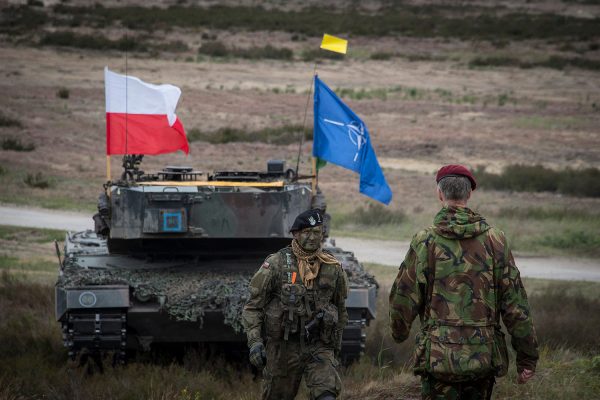
French president Emmanuel Macron called for a European army in 2018, arguing the EU needed to defend itself from “China, Russia and even the United States of America.”
Two years later, the argument for a common European defense is even stronger.
China’s authoritarianism can no longer be denied. It has effectively revoked the autonomy of Hong Kong, is carrying out a cultural genocide against the Uighurs in west China, threatening its neighbors around the South China Sea and extending its reach as far west as Europe and as far north as the Arctic.
Russia continues to abrogate international norms. It still supports Bashar Assad in Syria, who is responsible for driving millions of his compatriots from their homes, many of them fleeing to Europe; it still occupies the Crimea and still supports an insurgency in southeastern Ukraine.
The United States are led by an impetuous president, who has accused the EU of “taking advantage” of America, called NATO “obsolete” and withdrawn 9,500 soldiers from Germany, but expressed admiration for Vladimir Putin and doubts that he ordered the poisoning of Sergei Skripal, a defector, and Alexei Navalny, an opposition leader.
Transatlantic rift
Even if Trump loses reelection in November, the Atlantic alliance is unlikely to be restored.
Trump’s laments about Europe underinvesting in its defense are widely shared.
America also has a different view of NATO. Whereas Europeans still see it as a defensive pact, the United States has come to use it as an expeditionary force. Europeans have been pulled into American-led wars in Afghanistan, Iraq and Syria, despite doubts from European leaders and opposition from European voters.
Ambition
A European army would address all these issues.
If Europe is forced to confront its own geopolitical challenges, it will no longer have to yield to the interests of America and get dragged into bombing the Middle East. This will save EU taxpayers money and allow governments to focus on the issues they believe are the most pressing to EU security.
A European army would enhance — and require — greater integration between member states.
The foundations are set. A Common Security and Defense Policy has nominally existed since 1999 and was strengthened by the Lisbon Treaty of 2009. Macron isn’t the first national leader to call for an EU army. François Mitterrand and Helmut Kohl expressed the same ambition in the 1990s.
Europe’s noisy opposition to a common defense — the UK — is on its way out; with it, the main excuse for not taking action.
Hurdles
There are still hurdles to overcome.
An EU army would inhibit member states’ ability to conduct an independent foreign policy. Countries that share a border with Russia (like Finland) or have tried to maintain good relations with it (Austria, Cyprus, Greece, Italy) would be forced to take sides.
Few European countries spend 2 percent of their GPDs on defense as recommended by NATO. What is to say they will make that commitment to a European army, especially when the bloc’s economy is projected to shrink 7.4 percent this year as a result of the coronavirus pandemic?
Some countries are already sharing military resources. Belgium and the Netherlands have integrated their air defenses and jointly procure frigates and minesweepers. Finland and Sweden announced bilateral military cooperation in 2013 and held a joint military exercise with NATO in 2019.
Are others willing to do the same? Would Poland, for instance, be willing to put its soldiers under a German command and concede a significant level of sovereignty? Would Italy?
Public opinion is divided. 89 percent of Lithuanians want a European army. Only 37 percent of Austrians and 33 percent of Swedes agree.
Yet the opportunity is there, and more importantly: the need. As the German defense minister, Annegret Kramp-Karrenbauer, put it: “it is in our own real interest that we should make faster and better progress in Europe” to unify defense and foreign policy.
